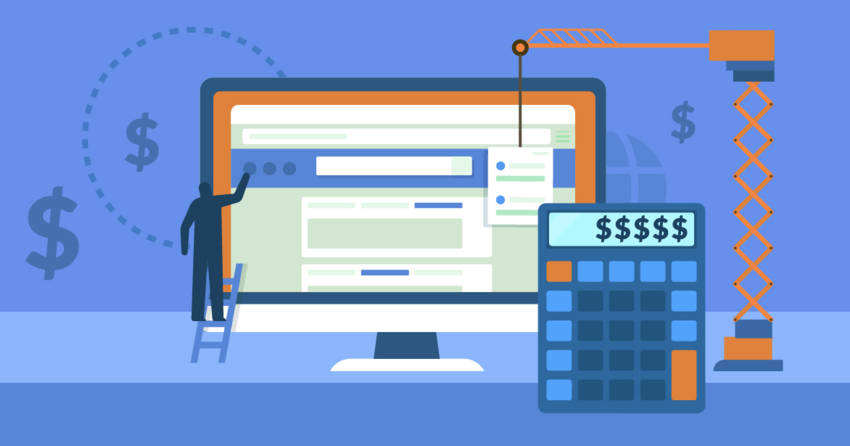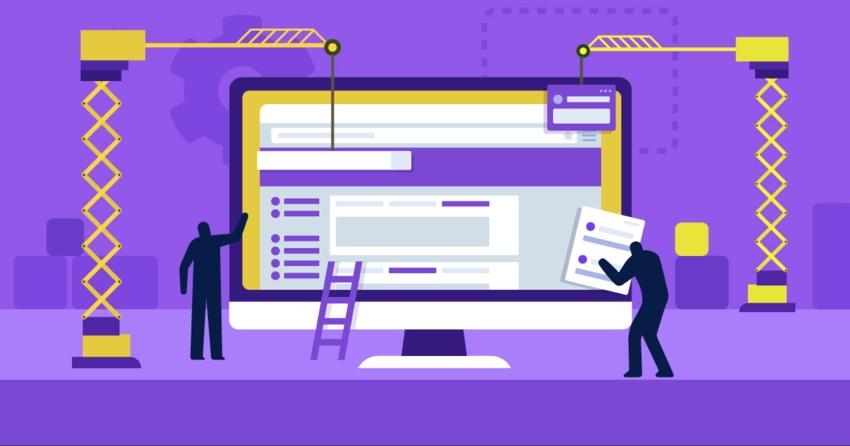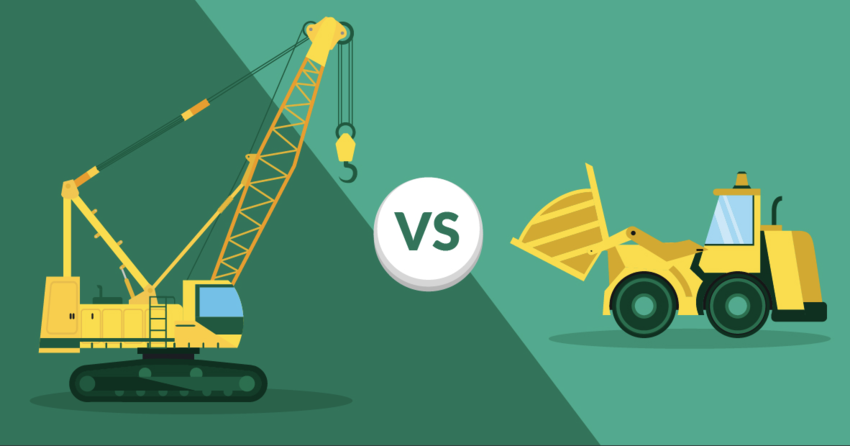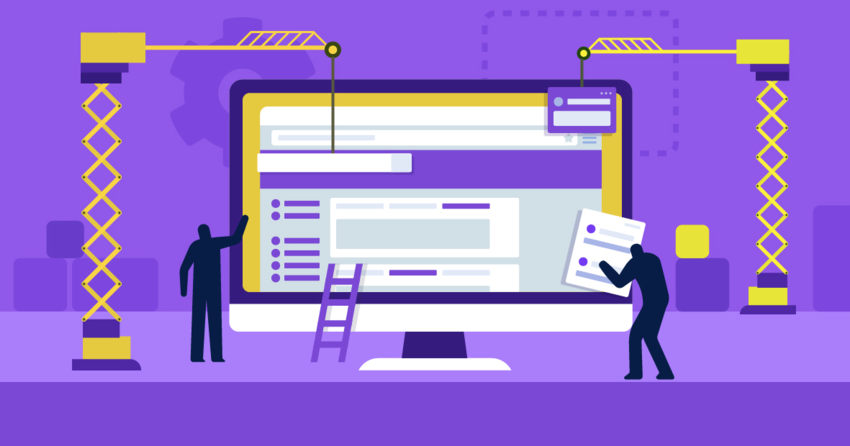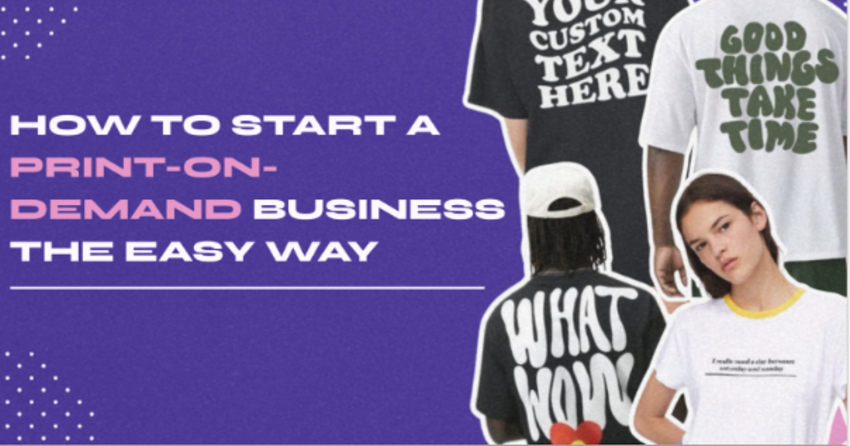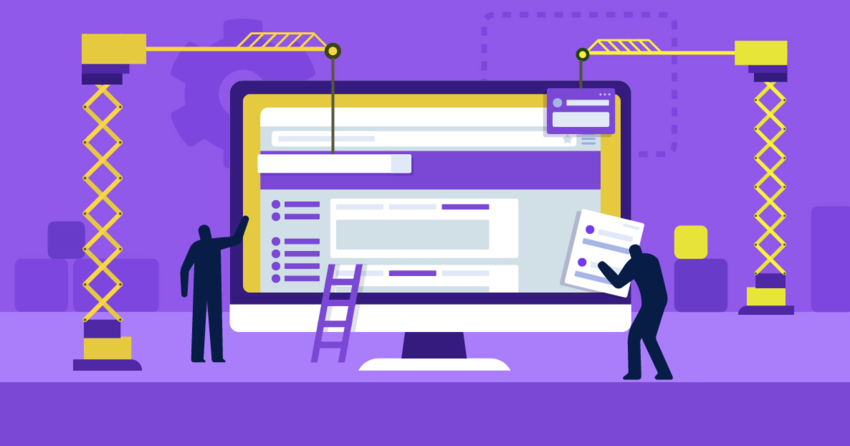Inside this Article

Save up to 25 % on your Shopify plan!
Limited-time offer - Don't miss it!
399 users used this coupon!
Templates
Shopify Has More Themes and More Versatile Designs
Big Cartel has 18 themes, which isn’t a lot, but they’re all stylish and automatically mobile-responsive. While Big Cartel’s designs already look good out of the box, they offer very little in terms of customization, unless you know how to code. On the free plan, you can add images and change colors and fonts… and that’s about it. If you upgrade to a paid plan, you’ll be able to edit your theme’s code to make more drastic changes.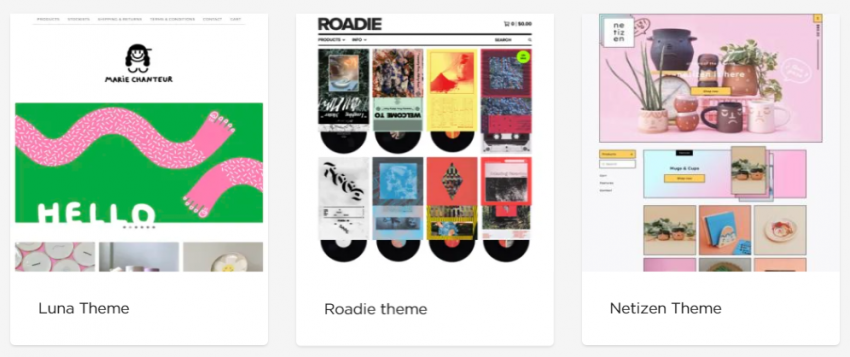
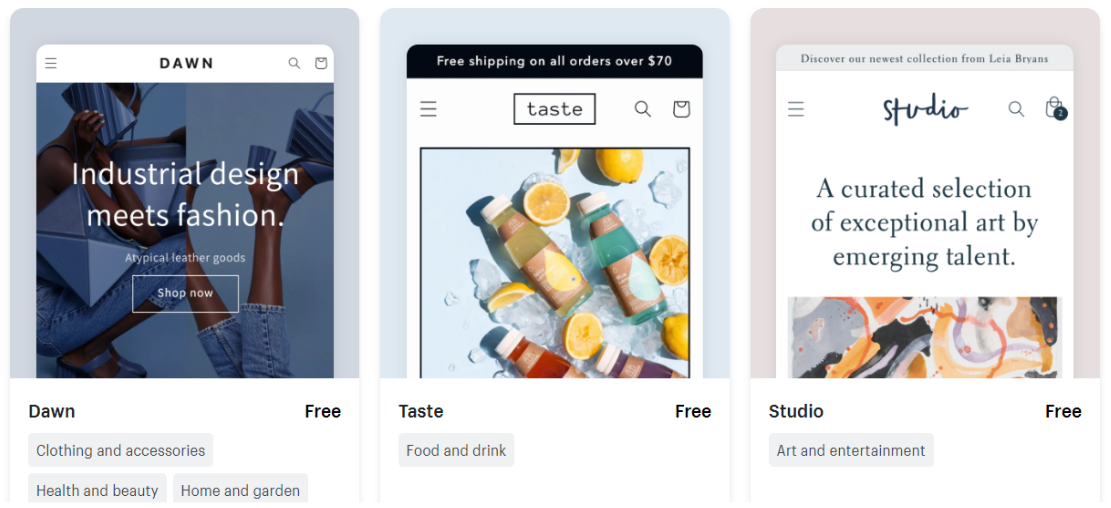
Features and Ease of Use
Big Cartel Is Simple, but Shopify Combines Ease of Use With Power
Big Cartel goes the extra mile to ensure that even complete beginners can launch a store quickly. Once you sign up, you’ll be taken to your Big Cartel dashboard, which contains a checklist of tasks to do. You’ll be able to add categories, edit products in bulk, and manage orders and inventory. There are also helpful pop-ups to guide you through the process of building your site. Shopify may not be as beginner-friendly as Big Cartel, but it’s still easy to use – and much more flexible. You can use Shopify’s intuitive drag-and-drop editor to customize template sections like sign-up forms, testimonials, and slideshows. Also, Shopify provides more advanced tools to showcase your products. For example, you can wow your potential customers with 3D photos and videos that enhance your product descriptions.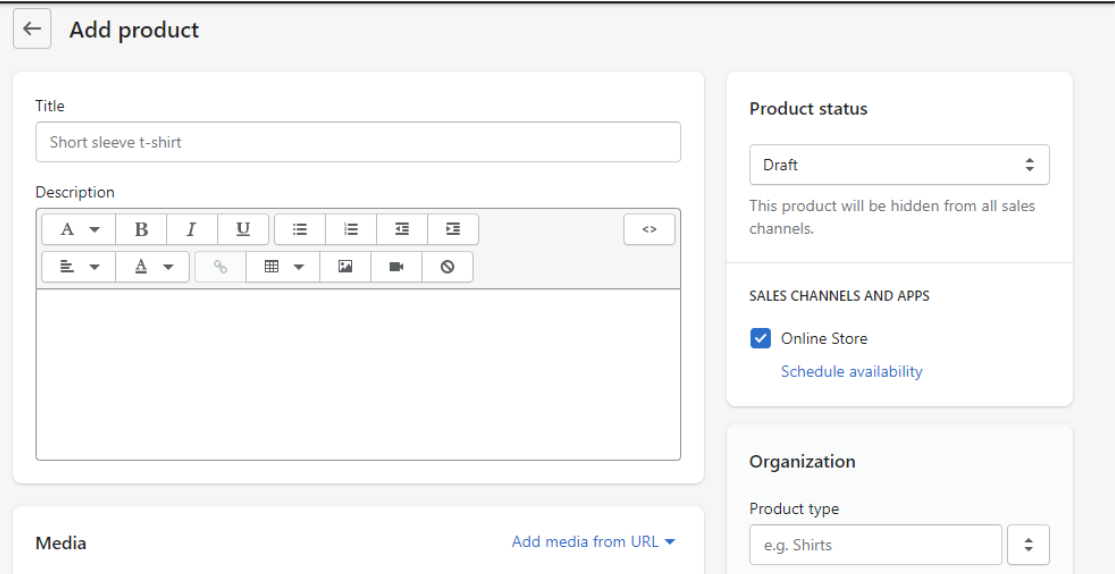
Apps
Big Cartel’s Apps Are No Match for Shopify’s Extensive Built-Ins and Integrations
Shopify has a strong set of built-in tools that you can only get with third-party integrations on most other e-commerce platforms, including Big Cartel. For example, if you have a brick-and-mortar store, Shopify’s POS system allows you to sync data between physical and online shops. In contrast, Big Cartel only lets you accept in-person payments with a Stripe account. Despite being designed for creatives, Big Cartel doesn’t let you sell digital products on its platform – you’ll have to integrate a third-party app called Pulley, which adds to the overall cost. While Shopify also requires a third-party app for selling digital products, there are free options in Shopify’s app store, such as Digital Downloads. Big Cartel offers 28 apps, but you can add hundreds more thanks to its integration with Zapier. Apps are divided across various categories, including store management, marketing, and shipping. You’ll find popular choices like Google Analytics, LiveChat, Printful, and more. You can read more about this in our Big Cartel review.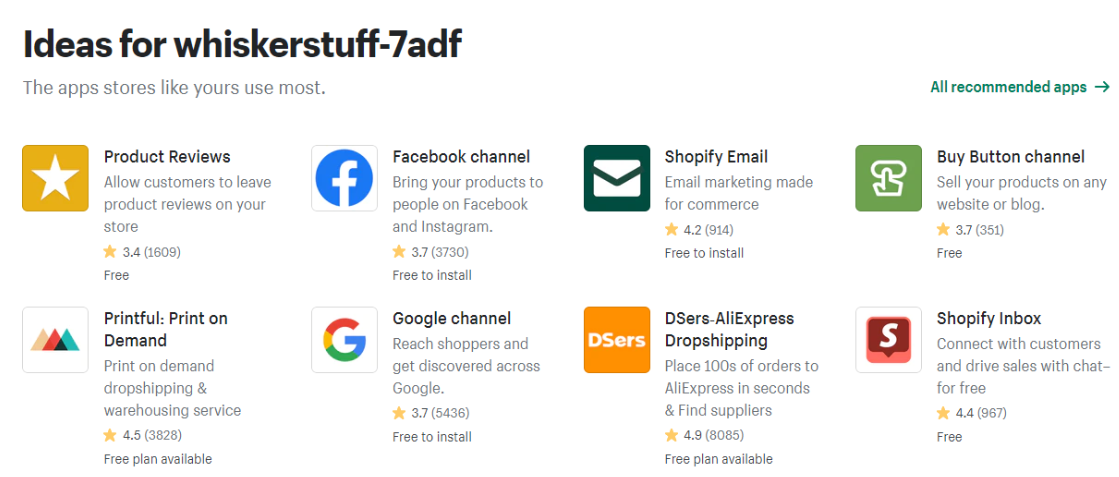

Short on time?
Take this one-minute quiz to learn which website builders are best for your project.
Marketing
Shopify Offers Multi-Channel Selling and Free Email Marketing
Big Cartel has a basic set of marketing tools. It lets you add social media links to your site, offer store discounts and run promotions, and you can integrate Mailchimp to boost your customer engagement. On the other hand, Shopify has stellar marketing features, especially when it comes to email marketing (just read our Shopify review to see what we’re talking about). Shopify’s built-in email marketing tool, Shopify Email, lets you send up to 10,000 emails a month for free. You can create your own or choose from prebuilt email templates that automatically pull your logo, products, and store colors. Through email automations, you’ll be able to run and analyze full-scale marketing campaigns.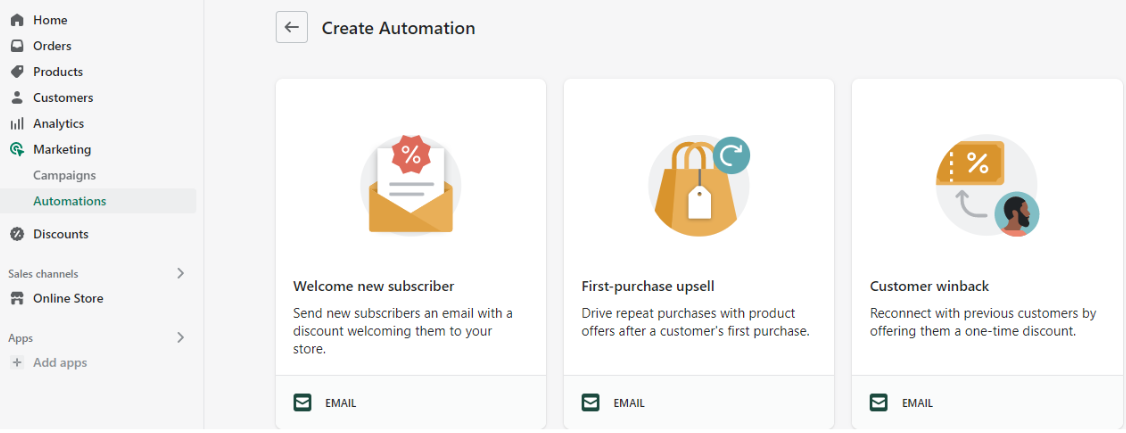
SEO
Shopify Has More Advanced SEO Features
Big Cartel optimizes your store for search engines, which includes an automatically generated sitemap, clean URLs, appropriate labels for image alt tags, and more. However, there isn’t much you can do to change these settings manually. For instance, you can edit product URLs, but not page URLs. This means that you’ll have to be very careful when naming pages to help search engines understand what your content is about. Shopify provides more flexibility when it comes to SEO optimization. You can change titles, meta descriptions, alt tag images, and more. You also get automatically generated sitemaps and 301 redirects, plus URL rewrites when you rename a product. This takes much of the hassle out of optimizing your store for search engines. Another useful optimization feature for stores is the ability to add a blog. SEO-optimized blog posts to help you rank higher in search engines. While Big Cartel lacks this function entirely, Shopify includes a blogging platform to help boost your online visibility and keep your customers up to date on product-related news and tips.Pricing
Big Cartel Is Cheaper, but You Get More Value With Shopify
While Big Cartel is one of the few e-commerce platforms that doesn’t charge a commission, you’ll have to upgrade to a paid plan for more functionality, and even then you won’t get any advanced features. Shopify is more expensive but includes loads of features – even on the cheapest plan – offering better value in the long run.Here’s What You Get for Free
Big Cartel’s free plan includes some useful features like shipment tracking and automatic tax calculation, and the ability to use a custom domain and offer discounts and promos. That said, the free plan only lets you sell five products, and you’re restricted to adding just one image per product. Shopify doesn’t have a free plan, but there’s a 14-day free trial to let you test all its features. While you’ll be able to set up your store during the free trial, you’ll need to choose a plan before you can start selling online.Here’s What You Get If You Pay
Big Cartel has two paid plans: Platinum and Diamond. Compared to the free plan, paid plans offer some additional features, such as theme code editing, Google Analytics, and bulk editing of products. Of note is that the only difference between these plans is the number of products you can add to your store, which is 50 and 500 products, respectively. Shopify makes most of its features available on all plans (Basic, Shopify, and Advanced), so regardless of your subscription, you get access to unlimited products, multi-channel selling, and abandoned cart recovery. Higher-tiered plans provide more staff accounts, inventory locations, and lower transaction fees. Overall, Shopify costs more than Big Cartel, but you get many more features in return. Also, Shopify provides in-house shipping and payment tools that cost extra with Big Cartel. Here’s a closer look at the cheapest paid plans by Big Cartel and Shopify.| Big Cartel | Shopify | |
|---|---|---|
| Starting Price | $9.99 | $29.00 |
| Number of products you can sell | 50 | Unlimited |
| Automatic tax calculation | ✔ | ✔ |
| PCI-compliant | ✘ | ✔ |
| Abandoned cart recovery | ✘ | ✔ |
| POS system | Yes, via integration | ✔ |
| 24/7 customer support | ✘ | ✔ |
Support
Shopify Has More Support Channels and More Responsive Agents
Both Big Cartel and Shopify have extensive Help Centers with articles and tutorials on all aspects of online store building. Shopify also has an engaged community forum that responds to questions quickly. When it comes to live support, Big Cartel only offers email support, which is available Monday to Friday, from 8 a.m. – 6 p.m. EST. It claims that responses typically take less than two hours, but when I tested the service for myself, it was several hours later until I received a reply. The support agent was friendly and gave me a detailed answer about managing currency in my store. (FYI, you can display prices on your site in only one currency.)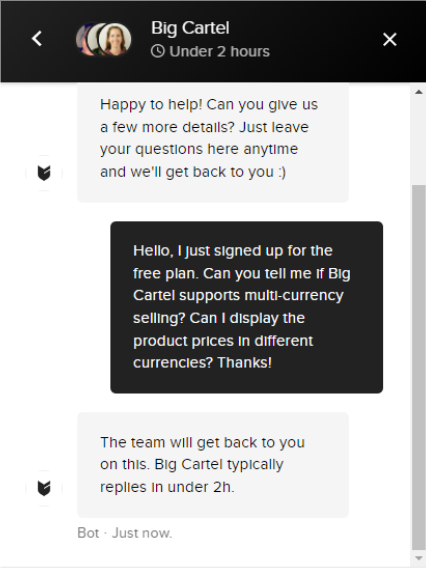
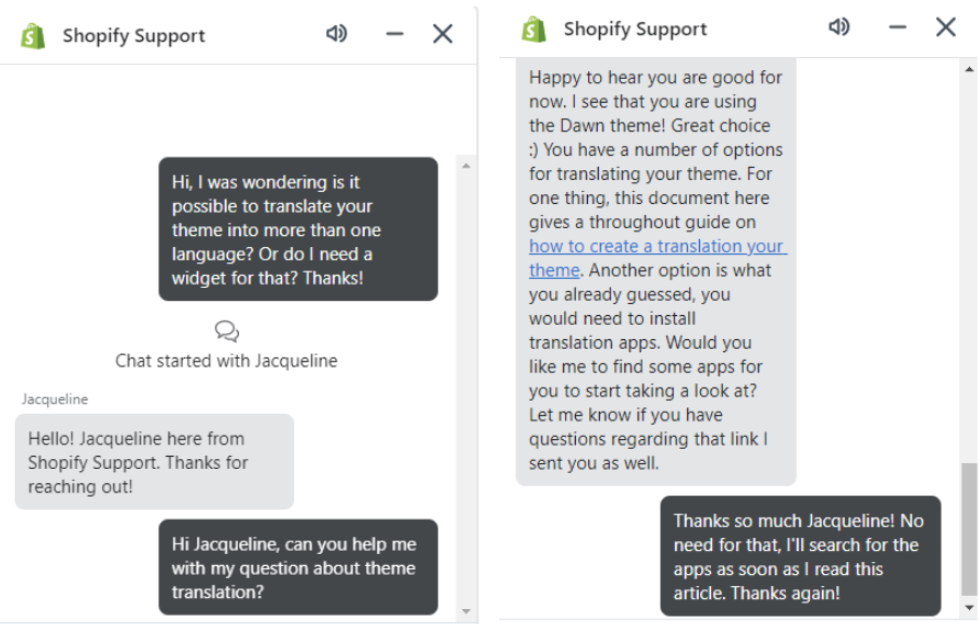
Big Cartel Has Its Strengths, but Shopify Offers Much More
Big Cartel is easy to use and it lets you sell for free, making it a good choice for artists with a limited budget and a small number of products to sell. That said, Shopify is also beginner-friendly, and it offers a broader array of useful e-commerce features, from diverse gallery layouts to built-in shipping and payment tools. Overall, Shopify is a better option for most online sellers, including creatives.Big Cartel
Shopify
Templates
18
90+
Features & Ease of Use
Simple interface, few customization options
Intuitive drag-and-drop editor that makes adding items quick and easy
Apps
28, plus hundreds more from Zapier
6,000+
Marketing
Discounts and promotions, Mailchimp integration
Multi-channel selling and free email marketing tool
SEO
Automatic optimization, limited manual settings
Strong set of SEO tools, extensive automatic and manual optimization features
Pricing
Limited free plan and two paid plans
Free trial and three paid plans
Support
- Help Center
- Help Center
- Community forum
- Live chat
- Phone



